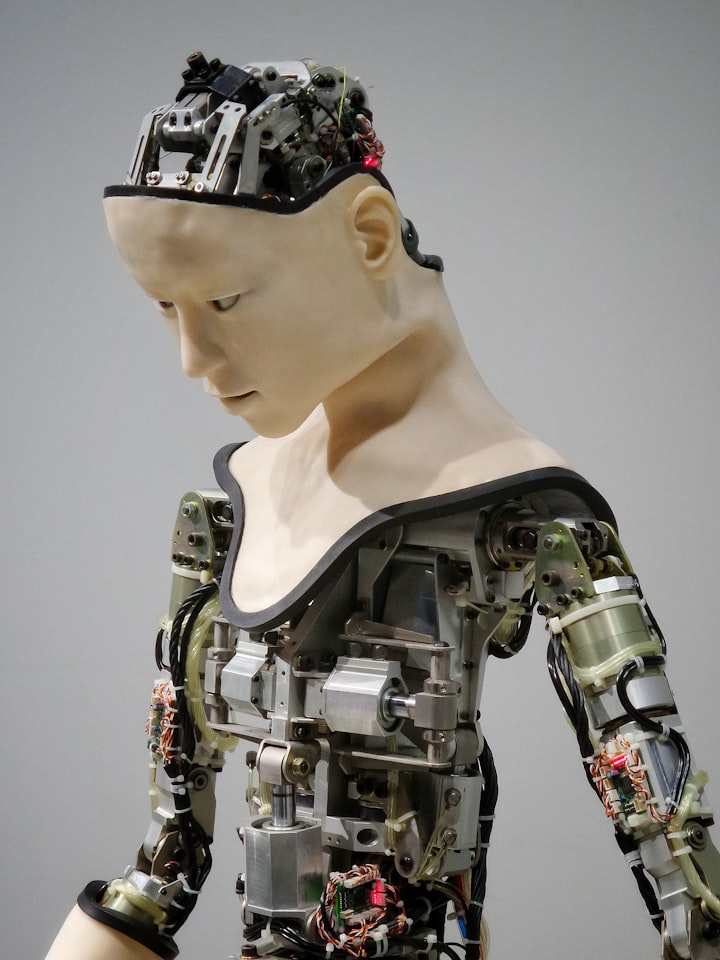What is Block Chain Technology in Detail?
What is Block Chain Technology in Detail?

What is Block Chain Technology in Detail?
Blockchain technology is a decentralized digital ledger that is used to record transactions in a secure and transparent way. The technology is based on a network of computers that work together to validate and store transactions.
In a blockchain, each block contains a set of transactions that are validated by the network. Once a block is validated, it is added to the blockchain, which is essentially a chain of blocks. Each block in the blockchain is linked to the previous block using cryptographic techniques, creating an immutable record of all the transactions that have taken place on the network.
Because blockchain technology is decentralized, there is no need for a central authority to verify transactions. Instead, the network of computers works together to validate transactions and maintain the integrity of the blockchain. This makes blockchain technology highly secure and resistant to fraud and manipulation.
Blockchain technology has many potential applications, from financial transactions to supply chain management to voting systems. It has gained popularity in recent years because of its ability to provide secure, transparent, and tamper-proof records of transactions.
Types of Block Chain Technology ?
There are several types of blockchain technology, each with its own unique features and characteristics. Here are some of the most common types of blockchain technology:
Public Blockchains: These are open and decentralized networks where anyone can participate and access the information. Public blockchains, such as Bitcoin and Ethereum, are designed to be transparent and secure, making them ideal for use in financial transactions and other applications where trust and transparency are important.
Private Blockchains: These are closed and centralized networks that are used by a specific group or organization. Private blockchains are typically used for internal business processes, such as supply chain management, where security and privacy are key concerns.
Consortium Blockchains: These are semi-decentralized networks that are managed by a group of organizations. Consortium blockchains are ideal for use in industries where multiple organizations need to work together, such as banking and finance.
Hybrid Blockchains: These are a combination of public and private blockchains that offer the benefits of both. Hybrid blockchains can be used in a variety of applications, from supply chain management to voting systems.
Sidechains: These are separate blockchains that are attached to a main blockchain, allowing for the creation of new applications and functionalities without compromising the security and integrity of the main blockchain.
Permissionless Blockchains: These are blockchains that allow anyone to participate in the network without needing permission. Permissionless blockchains are typically used in decentralized applications and cryptocurrencies.
Permissioned Blockchains: These are blockchains that require permission to access and participate in the network. Permissioned blockchains are typically used for business applications where privacy and security are important.
Blockchain technology has several advantages, including:
Decentralization: Blockchain technology is decentralized, meaning that it is not controlled by any single entity or authority. This makes it more resistant to censorship and manipulation, and increases the overall security of the network.
Security: Blockchains use advanced cryptographic techniques to ensure the security and integrity of transactions. This makes it very difficult to tamper with or alter transactions on the network.
Efficiency: Blockchains can process transactions quickly and efficiently, without the need for intermediaries or middlemen. This reduces transaction costs and speeds up the process of transferring assets.
Trust: Blockchain technology is based on a consensus mechanism, which means that transactions are verified and validated by multiple nodes on the network. This creates a high level of trust and ensures that transactions are accurate and reliable.
Programmable: Blockchain technology is programmable, meaning that it can be used to create smart contracts and other automated processes. This makes it possible to automate complex business processes and reduce the need for manual intervention.
Disadvantages of Block Chain Technology ?
Scalability: One of the biggest challenges facing blockchain technology is scalability. As more transactions are added to the network, it becomes more difficult to process them quickly and efficiently.
Energy Consumption: Some blockchains, such as Bitcoin, require significant amounts of energy to validate transactions on the network. This has led to concerns about the environmental impact of blockchain technology.
Complexity: Blockchain technology is complex and can be difficult to understand for those who are not familiar with it. This can make it challenging to use and implement in certain applications.
Lack of Regulation: Because blockchain technology is decentralized and not controlled by any single entity or authority, there is a lack of regulation and oversight. This can create uncertainty and risk for those who use blockchain technology.
High Costs: Blockchain technology can be expensive to implement and maintain, especially for small businesses and organizations. This can make it difficult for some to take advantage of the benefits of blockchain technology.
Limited Interoperability: Different blockchains are often not compatible with each other, which can make it difficult to transfer assets or data between them.
Thank You






Comments
There are no comments for this story
Be the first to respond and start the conversation.